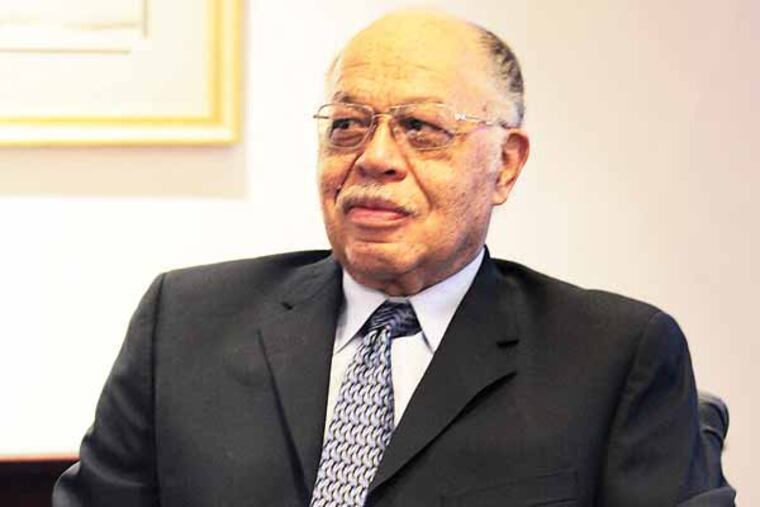Expert: Gosnell put abortion patient into coma
Witnesses said abortion patients at Dr. Kermit Gosnell's West Philadelphia clinic got to pick their anesthesia: one-size-fits-all doses that ranged in strength from "local" to "custom."

Witnesses said abortion patients at Dr. Kermit Gosnell's West Philadelphia clinic got to pick their anesthesia: one-size-fits-all doses that ranged in strength from "local" to "custom."
The "custom" formula - a potent cocktail of Demerol, promethazine, and diazepam - that Karnamaya Mongar got several doses of on Nov. 19, 2009, kept her unconscious throughout the abortion.
It also put her in a coma and killed her, Pittsburgh anesthesiologist Andrew Herlich told a Philadelphia jury Thursday at Gosnell's murder trial.
"The dose given to her exceeded the norm," testified Herlich, of the University of Pittsburgh Medical Center Mercy. "It would make her stop breathing."
Herlich, testifying for the prosecution, criticized Gosnell's practice of medicine at his Women's Medical Society Clinic at 3801 Lancaster Ave.
Herlich said anesthesia and sedation cannot be given to patients without tailoring the dosage to their body weight and carefully watching the drug's affect.
The death of Mongar, 41, of Virginia, a refugee from Bhutan who had been in the United States just four months, is the basis of one of the criminal charges against Gosnell.
Unlike many or Gosnell's patients - poor women desperate to get illegal late-term abortions - Mongar was 19 weeks pregnant and her abortion was legal in Pennsylvania.
Newly arrived after 20 years in a Nepal resettlement camp, Mongar had three children and her husband worked on a chicken farm. She wanted to end her latest pregnancy. She could not speak English.
Questioning Herlich, Gosnell's attorney, Jack McMahon, argued that Mongar's death was not Gosnell's fault.
McMahon reviewed a Nov. 26, 2009, letter Gosnell wrote to state health officials in which he wrote that Mongar's cardiac arrest during the abortion "left me in disbelief."
"I have personally been devastated and demoralized by this catastrophic event," Gosnell wrote.
Reviewing Mongar's admission forms before the abortion, McMahon noted that "she didn't list her respiratory problems."
Mongar's autopsy showed coal dust in her lungs that McMahon has called "black lung." He said it made her more vulnerable to anesthesia.
Herlich, however, said the coal was typical soot Mongar would have inhaled in the resettlement camp, where she used campfires for cooking and heat.
Gosnell, 72, is charged with third-degree murder in Mongar's death. He is also charged with seven counts of first-degree murder - newborns whose spines he allegedly snipped with scissors after late-term abortions. He faces the death penalty if found guilty.
Also on trial is Eileen O'Neill, 52, of Phoenixville, an unlicensed medical school graduate who worked as a doctor in Gosnell's clinic. She is not charged with performing abortions.
Questioned by Assistant District Attorney Edward Cameron, Herlich criticized every aspect of Gosnell's use of painkillers and anesthetics.
Herlich said that given Mongar's size - 5-foot-1 and 110 pounds - the anesthesia would have put her "into a coma," and added that Demerol had long been in disfavor.
Herlich also criticized Gosnell's practice of having staff - none with medical training - administer anesthesia and perform other medical tasks.
He said no doctor performing procedures on a patient who is sedated and anesthetized should proceed without an anesthesiologist present to monitor the patient's vital signs and ready to begin emergency resuscitation.
Examining Gosnell's "crash kit," the container of medications and equipment needed for emergency resuscitation that authorities seized in 2010, Herlich noted that crucial medicines such as epinephrine had expired in 2007.